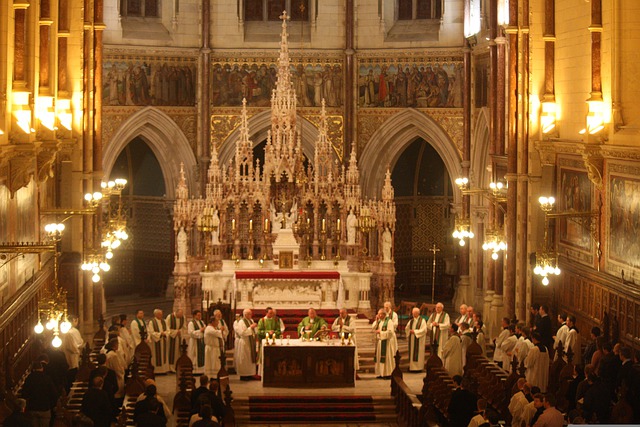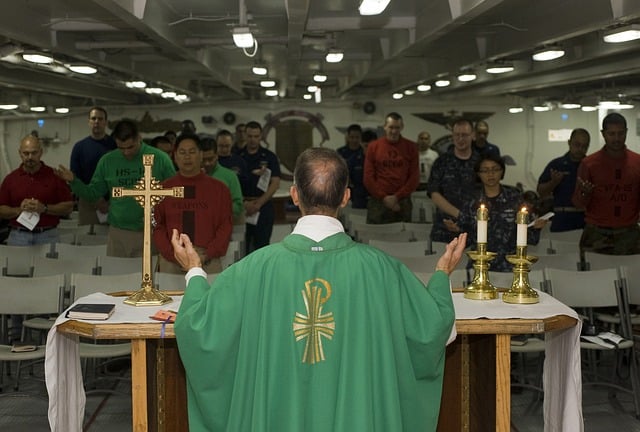
The doxology is a hymn of praise to God.
Doxology is a formula used to praise God . This is a property that theological language must demonstrate to glorify divinity in an authentic way.
major doxology
The hymn that, in the Catholic liturgy, allows the Holy Trinity to be exalted is known as a major doxology . This hymn , called Gloria in excelsis Deo , is sung at mass after the prayer called Kyrie eleison .
The major doxology begins with the stanza “Glory to God in the highest” or “Glory to God in the highest heavens.” Its ending, meanwhile, is done with the phrase “with the Holy Spirit in the glory of God the Father, amen.”
minor doxologies
It is important to mention that there are several minor doxologies . One of the best known is the Gloria Patri . This prayer begins by pointing out “Glory to the Father, and to the Son, and to the Holy Spirit.”
Precisely by mentioning the Holy Trinity, it is also said that the latter is a Trinitarian doxology . One of its particularities is that, in addition to praising God, it reaffirms the faith that the three components of the Trinity enjoy equality. The Gloria Patri continues “As it was in the beginning, now and forever” and ends with the well-known declaration “forever and ever,” after which the faithful must respond “amen.”
Etymology
It can be stated that doxology is a way to perform praise . In fact, the etymology of the concept refers to a “word of praise.” In Christianity, the origins of doxologies used today date back to the 7th century .
Continuing with the etymology of the term doxology , we must add that it is a compound neologism that has its origins in the Greek language. Its three components are the following:
* doxa : denotes meanings such as "glory, praise, opinion", and we can find it in another term in our language that is also used in this context, orthodox ("in accordance with the official precepts of a religion");
* logos : it translates as "treaty, word", and is part of various words in the Spanish language that we use quite frequently, among which prologue, philologist and dialogue stand out;
* -ía : this component of the term doxology is a suffix, which gives the idea of "quality", and we also see it in a large number of terms, such as psychology, ecology and neurology .
at mass
In the Catholic liturgy, the doxology must be said by the person who presides over the mass : that is, by the priest or bishop. The community, in this framework, has to remain silent and only join the doxology in closing, adding to the expression “amen” . Therefore, the doxology is detailed by the priest in its entirety, while the faithful only pronounce the word “amen” simultaneously with him.

The body of the doxology is pronounced by whoever presides over the mass; The faithful say only the closing.
This characteristic or condition of the doxology reminds us of the importance of hierarchy in the Catholic Church. We must not forget that its entire structure is rigidly defined by various roles that keep its different bodies and congregations functioning. Each actor within the Church has their functions, as well as a series of rules that affect their relationship with others and with the faithful.
Although the words spoken by the priest or the passages read from the Bible during the mass could also be reproduced by the parishioners in their homes, they go to church because they trust in the authority that the priest has over them in regarding their relationship with God and their knowledge to become a channel that brings them closer to Him in the most appropriate way, also helping them to reflect and become better Christians.
